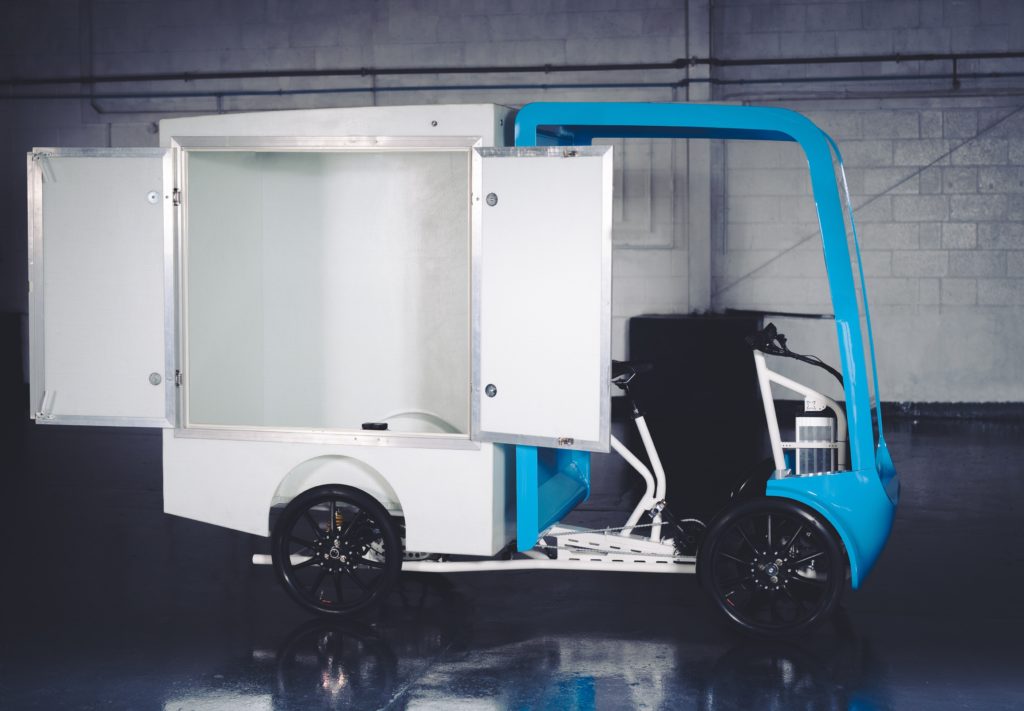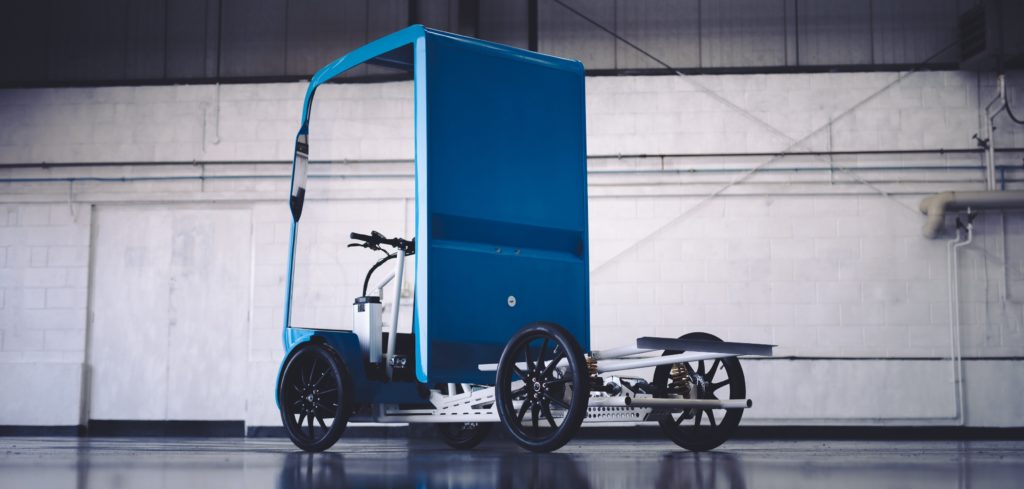UK company Electric Assisted Vehicles Limited has launched its EAV 2Cubed eCargo, an ultra-lightweight commercial vehicle based on the requirements of EU eCargo regulations.
The company says that the electrically assisted cycle incorporates a separate chassis-cab unit, with a 2m3 (70ft3) goods box affixed to the rear, which it claims makes it a viable alternative to traditional vans in urban areas, having been “engineered down from a van, rather than up from a bicycle”.
Adam Barmby, founder and CEO of EAV, commented, “The advent of electric bike technology has meant we can now use a biomechanical electric hybrid vehicle, like the EAV 2Cubed, to replace most vans and even cars in urban environments without any loss in business operational efficiency or discomfort to the operator or driver.”
By combining EAV’s existing chassis-cab unit with the 2m3 fixed rear box, the company says the vehicle is capable of carrying 20% of the (volumetric) capacity of a diesel-engined Ford Transit, which it hopes makes for a viable alternative to vans in sectors such as last-mile delivery. For direct comparison, the company notes that Transport for London research has confirmed that 40% of vans use only on average 25% of their capacity.
Maximum payload of the 2Cubed is currently 150kg (330 lb), plus rider, somewhat shy of 25% of the 980kg (2,160 lb) payload of the smallest Transit, but EAV says a new wheel and tire package that significantly increases weight carrying capacity will soon be announced.
“We can honestly see a time when the majority of urban commercial and even personal traffic is based on the EAV chassis-cab concept, and we already have a solution to almost every road transport use conceivable,” concluded Barmby.



